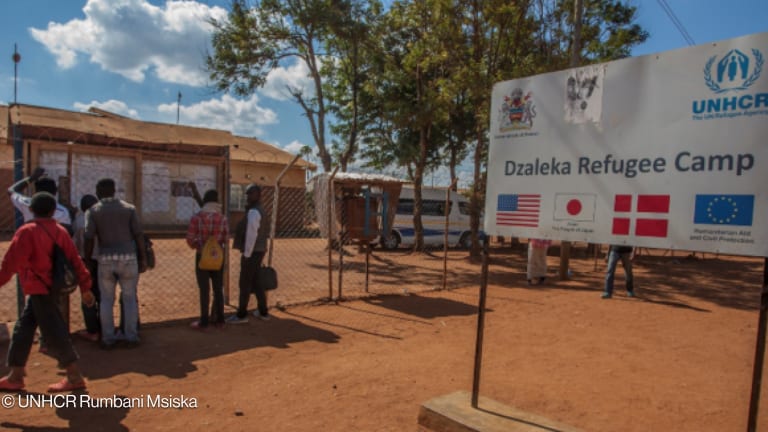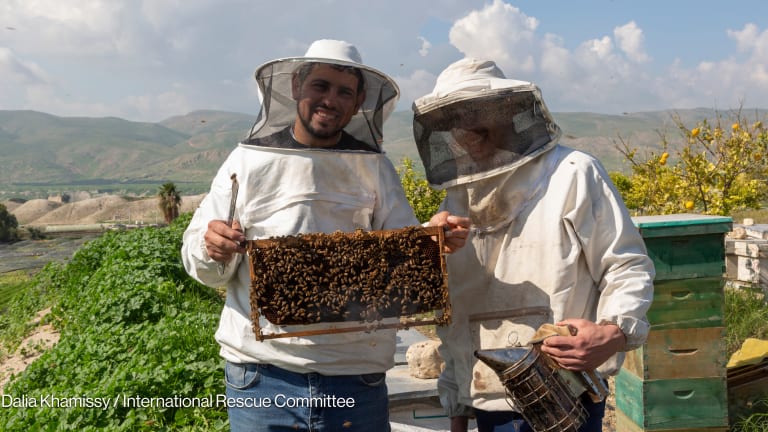
Written by Graeme Rodgers and Andrew Fuys. Rodgers is an independent researcher and principal author of the CWS report, “Accessing Services in the City: Findings from a Comparative Study of Urban Refugee-Host Community Relations.” Andrew Fuys is associate director for international programs with CWS. A copy of the report is available here.
For years the refugee camp has been the quintessential image of forced displacement. Frequently located on marginal land in remote rural locations, depictions of refugees in camp environments often convey isolation and dependence.
Increasingly, though, the refugee camp narrative no longer reflects the face of forced displacement in many parts of the world. By 2008, more than half of the world’s refugees could be found living in urban areas, according to estimates from the United Nations High Commissioner for Refugees. This is perhaps most visibly reflected in the current Syrian refugee crisis, in which the majority of refugees in Jordan and other neighboring countries have fled to urban areas rather than refugee camps.
As forcibly displaced persons enter cities, they take a courageous step towards reorienting their lives, recalibrating their family and community relationships, and redefining their futures. Often, the ability of urban refugees to access protection, shelter, livelihoods, health care and education depends on broader networks and relationships, including with local citizens in the city of asylum.
In 2012, Church World Service conducted a three-country study on the relationships between urban refugees and their neighbors in countries of asylum. Through this project, CWS sought to identify new opportunities for assisting urban refugees that build on existing relationships that they establish with host communities.
Drawing on survey responses from more than 1,200 refugee households in Cameroon, Indonesia and Pakistan, as well as and focus groups with both refugee and host community institutions, the study found that urban refugees’ lives do tend to improve over time, as evidenced by positive changes in access to household income, access to education and health care, and refugees’ perceptions of personal safety. These improvements are generally associated with more frequent and positive interactions with between refugees and their hosts.
The CWS study affirmed that urban refugees are actively defining their futures in diverse ways and have various means to shape these paths, including by investing in relationships in the urban setting. Humanitarian agencies must recognize this reality and consider new approaches to expanding opportunities in urban areas, in ways that benefit refugees and nationals alike. This could include:
Prioritizing direct support to urban refugees’ during their arrival phase, particularly the first six months, when many are at their most vulnerable.
Developing clear context-specific vulnerability criteria for targeted direct assistance beyond the initial arrival phase.
Establishing rental housing standards and mechanisms to resolve disputes between landlords and refugee tenants, developing lists of preferred “refugee-friendly” landlords, and providing refugees with bridging support to cover deposits or initial rental payments.
Expanding livelihood opportunities in formal or mainstream sectors, by offering incentives to local employers to hire refugees, conducting outreach to host community employers and orienting refugees to local employment market norms, and monitoring fair labor practices with regards to refugees.
Creating incentives for health and other service providers to extend their services to refugees in urban areas, including through institutional or infrastructural investments, rather than relying solely reimbursement mechanisms that minimize the agency of refugees as “clients.”
Considering options for regularized migration and expanding opportunities for local integration, given that voluntary return cannot be assumed for urban refugees; particularly the longer they spend in the country of asylum.
Protection itself has evolved over the last half-century in response to changes in the humanitarian landscape. Refugee assistance must also continue to evolve, so that displaced persons living in cities may develop the relationships needed for them to apply their talents and resources productively – both for their own benefit, and for the benefit of their new neighbors.
Join the Devex community and access more in-depth analysis, breaking news and business advice – and a host of other services – on international development, humanitarian aid and global health.








